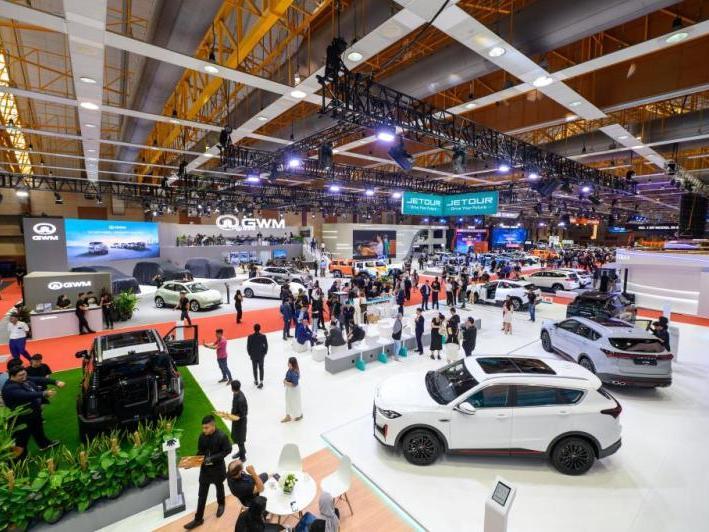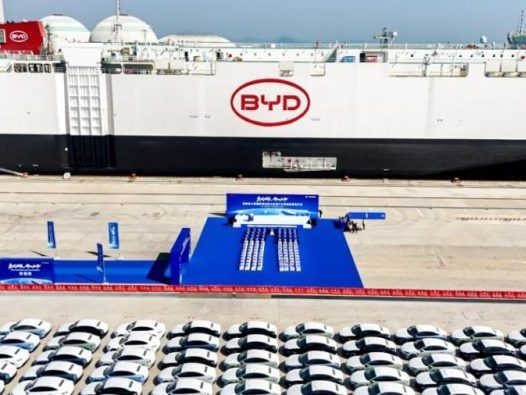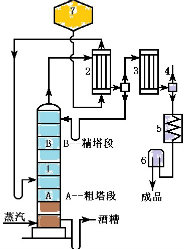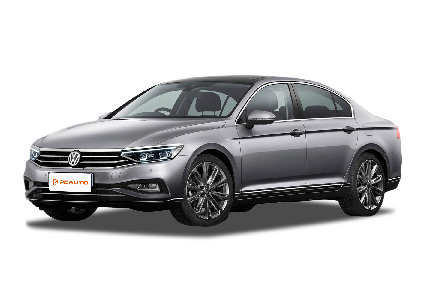Q
How much does a 2020 Passat cost?
The 2020 Volkswagen Passat prices in Malaysia vary depending on the trim and configuration. Brand-new models typically range from around RM180,000 to RM220,000, with the exact figure depending on the powertrain option (like the 1.8 TSI or 2.0 TSI) and added features such as premium sound systems or driver assistance packages. In the used car market, prices fluctuate based on condition, mileage, and warranty status, usually falling between RM120,000 and RM160,000. As a midsize sedan, the Passat is known for its comfortable ride, solid chassis tuning, and German engineering, making it a great fit for families or business use. Its turbocharged engines also strike a nice balance between power and fuel efficiency. In Malaysia, the Passat's main rivals include the Toyota Camry and Honda Accord, but it leans more towards that European driving feel—perfect for buyers who value handling and noise insulation. When buying used, it's smart to check service records and get a professional inspection to ensure good condition. Volkswagen Malaysia's official certified pre-owned program is also a more reliable option to consider.
Special Disclaimer: This content is published by users and does not represent the views or position of PCauto.
Related Q&A
Q
Can I start my VW Passat with my phone?
Yes, some Volkswagen Passat models do support remote start functionality through a mobile app like Volkswagen We Connect, depending on the vehicle's year and trim level. If your Passat is equipped with Keyless Access and supports We Connect services, you can use the app to remotely start the engine, unlock doors, or adjust the climate control. This tech usually requires the car to have a built-in SIM card and internet connection, plus you'll need to link your vehicle info to the app. In Malaysia, it's a good idea to check local network compatibility and service subscription status before using it—some features might cost extra. Other brands like BMW with ConnectedDrive or Mercedes with Mercedes me offer similar remote control features, but how they work can vary between makes. If your Passat doesn't have this function, retrofitting a third-party smart key system is an option, though you should be aware it might affect the original warranty. It's best to contact an authorized Malaysian dealer to confirm your specific vehicle's configuration and service availability.
Q
What does Passat mean in German?
"Passat" means "trade wind" in German – those steady winds that blow near the equator, symbolizing lasting reliability and smooth driving. Volkswagen named their classic model after this natural phenomenon, aiming to convey that the car would perform as steadily and efficiently as these winds. Since its launch in 1973, the Passat has stood out as a global icon in the midsize sedan segment, thanks to its German engineering and practical design. This rings especially true in Malaysia, where families love its spacious interior, comfy suspension, and fuel efficiency. What’s interesting is that in Southeast Asia, the Passat once carved out a niche as Volkswagen’s "B-segment sedan," setting itself apart from Japanese rivals. The later plug-in hybrid version also showed the brand keeping up with local eco-friendly trends. For Malaysian buyers, the Passat isn’t just about top-notch German engineering; it’s about handling diverse road conditions too. Think things like better heat dissipation for tropical weather and rust protection in humid environments – little touches that show Volkswagen pays attention to regional needs.
Q
How far can a Volkswagen Passat go on a full tank?
The actual range of the Volkswagen Passat in the Malaysian market depends on the specific model and driving conditions. Take the common 1.8TSI or 2.0TDI variants, for example. They typically have a fuel tank capacity of around 66-70 liters. Based on official figures, the combined fuel consumption is approximately 6-7L/100km for petrol versions or 4-5L/100km for diesel models. Theoretically, a full tank could deliver a range of 950-1,100 km (petrol) or 1,300-1,500 km (diesel). However, real-world driving in Malaysia—like city traffic jams, highway cruising, or mountain road driving—will affect fuel efficiency. We recommend drivers optimize fuel economy by regularly checking tire pressure and avoiding aggressive acceleration and braking. Also, Passats from different years might come with direct fuel injection, DSG transmissions, or plug-in hybrid technology; these innovative features can further boost fuel efficiency. For more precise data, consult your vehicle manual or use the on-board computer's range calculation function, which adjusts the estimated mileage in real-time based on driving habits.
Q
Is a Jetta or Passat more reliable?
In the Malaysian market, both the Volkswagen Jetta and Passat are popular models, but their reliability performances differ slightly. As a compact sedan, the Jetta has a relatively simple structure and lower maintenance costs, making it especially suitable for urban commuting. Its 1.4T or 1.5T engine technology is mature with a low failure rate, though some owners have reported that the DSG dual-clutch gearbox may experience slight jerking during long periods of stop-and-go traffic. The Passat, as a midsize sedan, features a 2.0T engine and more advanced chassis tuning, delivering more stable performance during long-distance driving. However, its major electronic configurations might lead to slightly higher maintenance complexity in the later stages, but the overall build quality remains excellent. Both models are recommended to follow the official maintenance schedule and use specified engine oil and parts to extend their service life. Malaysia's hot and rainy climate poses a test for the cooling systems and sealing strips of German cars; regular checks on coolant and sunroof drainage pipes can prevent common issues. If prioritizing fuel efficiency and flexibility, the Jetta is more suitable; if seeking space and comfort, the Passat is a better choice. Actual purchasing decisions should also consider budget and usage needs comprehensively.
Q
How much horsepower does a 2020 Passat have?
The 2020 Volkswagen Passat available in the Malaysian market is primarily equipped with a 2.0-liter TSI turbocharged petrol engine, delivering a maximum output of 174 PS and a peak torque of 320 Nm, mated to a 7-speed DSG dual-clutch transmission. This powertrain strikes a good balance between everyday driving smoothness and fuel efficiency. It's worth noting that Passat models can vary in powertrain configurations across different regions; for instance, some markets offer the more performance-focused R-Line variant or plug-in hybrid models, but the mainstream option in Malaysia is the 174-horsepower version. For Malaysian consumers, the Passat's performance is more than adequate for city commuting and highway cruising. Additionally, Volkswagen's chassis tuning emphasizes a balance between comfort and stability, making it well-suited for the country's diverse road conditions. If you're craving more performance, keep an eye on Volkswagen's GTI or R models, which typically come with higher-powered engines. It's advisable to visit an authorized dealership for a test drive before purchasing, to get a real feel for the power response and handling characteristics to see if they align with your personal preferences.
Q
Is Passat high on maintenance?
The maintenance cost of the Volkswagen Passat in Malaysia is mid-to-high range. The specific expenses depend on the model year, engine type, and whether you choose an original factory or third-party repair center. German cars usually have higher part prices, but the Passat has a longer maintenance interval (about 15,000 kilometers or once a year), which can partially offset the cost. Turbocharged engines require fully synthetic engine oil. A minor service costs around RM600-RM800, and a major service can reach over RM1,500. It is recommended that car owners regularly maintain the DSG gearbox and fuel system to extend its lifespan. In Malaysia, you can control expenses by comparing maintenance packages from authorized service centers or reputable third-party workshops. Maintenance costs for Japanese cars in the same class, such as the Camry, may be slightly lower, but the Passat has advantages in driving feel and safety configurations. For long-term ownership, you need to budget for replacing major components like the timing chain. A well-maintained Passat has good durability.
Q
What is the life expectancy of a 2020 Passat?
The 2020 Volkswagen Passat can last around 150,000 to 200,000 kilometers or 10 to 15 years in Malaysia, depending on maintenance, driving habits, and local climate. Regular replacement of key components like engine oil, transmission fluid, and timing belt can significantly extend its lifespan. Malaysia's tropical climate takes a bigger toll on rubber parts and electronics, so it's advisable to shorten the service interval to every 6 months or 7,500 kilometers. Cars driven mostly on highways are generally more durable than those used for frequent short trips. The Passat's TSI turbo engine and DSG dual-clutch transmission are reliable with proper maintenance, but special attention should be paid to the cooling system and transmission fluid change intervals. Japanese models in the same class are usually known for longer service intervals, while German cars have an edge in high-speed stability. It's recommended that owners keep complete maintenance records to boost resale value. For long-term parked vehicles, battery maintenance and tire deformation prevention are important. Malaysia's rainy environment also requires extra attention to the brake system and chassis rust protection.
Q
How often does a Passat need an oil change?
The recommended oil change interval for the Volkswagen Passat is typically every 15,000 kilometers or 12 months, whichever comes first. This guideline is based on using fully synthetic oil that meets VW 502 00/505 00 standards under normal driving conditions. However, given Malaysia's hot and dusty climate, combined with frequent urban traffic congestion, if you often take short trips or drive in prolonged high-temperature environments, consider shortening the interval to every 10,000 kilometers or 10 months for better engine protection. When choosing oil, always ensure it meets Volkswagen's certification standards, such as 5W-30 or 5W-40 viscosity fully synthetic oils. Additionally, regularly check the oil level and condition—if the oil turns black or has increased impurities, address it promptly. Moreover, the Passat's turbocharged engine has higher oil quality requirements; timely changes not only reduce carbon buildup but also extend turbocharger lifespan. It's advisable for owners to keep maintenance records to ensure warranty coverage and prioritize using genuine parts at original factory or authorized service centers. If performing self-maintenance, ensure the technician is familiar with Volkswagen's technical specifications.
Q
What type of oil does a 2020 Passat take?
For the 2020 Volkswagen Passat in Malaysia, the recommended engine oil specifications are typically fully synthetic oils meeting VW 502 00 or VW 504 00 standards, with viscosity grades of 5W-30 or 5W-40. The specific choice should be based on the vehicle's owner's manual and local climate conditions; in hot climates, 5W-40 offers better high-temperature protection. Malaysian car owners should ensure they select oil brands with Volkswagen certification, such as Castrol and Liqui Moly, to guarantee optimal engine performance and longevity. Regular oil changes (recommended every 10,000 kilometers or 12 months) are particularly crucial for turbocharged engines, as they effectively reduce carbon buildup and wear. If the vehicle is equipped with a GPF (Gasoline Particulate Filter), low-ash oil meeting VW 508 00/509 00 standards must be used to prevent clogging. It is advisable for owners to have maintenance performed at authorized service centers, where they use factory-specified oil and can reset the maintenance reminder via the on-board computer. Familiarizing oneself with oil certification marks like API SN/SP or ACEA A3/B4 can also assist in making informed choices when purchasing oil outside of 4S shops, but it is essential to ensure the packaging displays the VW certification logo.
Q
Are Passats cheap to fix?
In Malaysia, the maintenance costs for the Volkswagen Passat are mid-range. The specific expenses depend on the model year, parts source, and repair shop chosen. Generally, Passat parts are slightly pricier than Japanese cars, but thanks to Volkswagen's dealer network and localized supply chain in Malaysia, regular services like oil changes and filter replacements cost about the same as other European cars in its class. Using original parts will push up repair costs, but going for reliable third-party parts or independent workshops can effectively cut down expenses. The Passat is pretty durable; with regular maintenance, the long-term repair frequency won't increase significantly. For Malaysian consumers, it's advisable to prioritize Volkswagen-certified service centers to ensure technical expertise and warranty validity. Also, keeping track of replacement cycles for common wear-and-tear parts like brake pads and batteries helps with better budget planning. European cars are designed with a focus on performance and safety, and some complex systems (like turbochargers or DSG gearboxes) may require specialized equipment for repairs, so choosing experienced technicians is crucial.
Latest Q&A
Q
How much is a Nissan 2018 worth?
The used car prices for 2018 Nissan models in Malaysia vary depending on the model, condition, mileage, and specifications. Generally, the price range is between RM60,000 and RM120,000. For example, the entry-level Nissan Almera might cost between RM60,000 and RM80,000, while higher-spec Nissan X-Trail or Nissan Teana could go up to RM100,000 to RM120,000. Used car prices are also influenced by market demand, maintenance records, and vehicle color. It's advisable to check specific quotes through used car platforms or dealers before purchasing and arrange a professional inspection to ensure the vehicle is in good condition. Additionally, Nissan models are known in Malaysia for their durability and low maintenance costs, especially the Almera and X-Trail, which have a high local ownership rate, ensuring ample parts supply and relatively convenient repairs. If considering financing a used car purchase, it's important to note banks' restrictions on vehicle age and mileage; typically, vehicles over 10 years old or with high mileage will have stricter loan conditions.
Q
How much is a 2018 Nissan Navara?
Prices for the 2018 Nissan Navara in Malaysia's used car market typically range from RM70,000 to RM120,000, depending on condition, mileage, trim level, and location. High-spec VL or V variants usually command a RM20,000 to RM30,000 premium over base E or S models. This pickup truck is known for its 2.5-liter turbo diesel engine (190hp/450Nm) and robust chassis, making it well-suited to local road conditions—especially popular with construction and agricultural users. Its 7.3-meter minimum turning radius and 216mm ground clearance perform exceptionally well across Southeast Asia's varied terrains. Notably, the Navara's used prices sit slightly below the 2018 Toyota Hilux or Mitsubishi Triton, but it offers more affordable maintenance costs. An unexpired original 5-year/150,000km warranty (whichever comes first) can boost resale value. Buyers should verify 4WD system and transmission condition through PUSPAKOM inspection, while checking the ETEMS system to ensure no outstanding road tax or fines.
Q
What is the best selling Nissan in 2023?
The best-selling Nissan model in the Malaysian market for 2023 was the Nissan Almera. This B-segment sedan emerged as a popular pick among local buyers thanks to its budget-friendly price tag, impressive fuel efficiency, and practical features that cater perfectly to young families. Under the hood, the Almera packs a 1.0-liter turbocharged engine, churning out 122 horsepower and 152 Nm of torque, paired with a CVT gearbox. It strikes a nice balance between power and fuel economy, making it especially well-suited for Malaysia's urban driving conditions. The car also comes loaded with Nissan Intelligent Mobility safety tech, including a 360-degree around-view monitor and an intelligent forward collision warning system. It's worth highlighting that Malaysian consumers hold the Nissan brand in high regard, particularly for its reliable durability and extensive after-sales service network, which has helped Nissan maintain steady performance in the local market. Beyond the Almera, the Nissan Navara pickup truck and X-Trail SUV also enjoy considerable popularity, showcasing the brand's competitiveness across different market segments. With the growing trend towards new energy vehicles, Nissan is also gradually introducing its e-POWER hybrid technology in Malaysia, potentially offering consumers more diverse powertrain options in the future.
Q
What is the cheapest Nissan car in 2023?
The cheapest Nissan model in Malaysia for 2023 is the Nissan Almera. This entry-level four-door sedan has become a hit with budget-conscious buyers thanks to its affordable price tag and practical features. Its 1.0-liter turbocharged engine delivers excellent fuel efficiency, making it perfect for city driving, while standard tech like smart keyless entry and a 7-inch touchscreen add to its strong value proposition. When factoring in running costs, the Almera also boasts relatively low maintenance expenses, aligning with Malaysian consumers' demand for economical vehicles. On top of that, Nissan's well-established dealer network and convenient after-sales support in Malaysia provide extra peace of mind for owners. For buyers on a tight budget who still want brand reliability, the Almera is definitely worth considering. That said, rivals in the same segment like the Toyota Vios and Honda City each have their own strengths, so it's advisable for consumers to test drive and compare based on their personal needs before making a final decision.
Q
How much is Nissan Almera turbo 2023 in the Philippines?
The 2023 Nissan Almera Turbo is priced at around 848,000 Philippine pesos (approximately RM70,000, with exchange rates subject to fluctuation) in the Philippine market. This is the entry-level price for the 1.0-liter turbocharged variant, and higher-spec models will cost more accordingly. Under the hood, it packs a 1.0T three-cylinder turbo engine that cranks out 100 horsepower and 152 Nm of torque, paired with a CVT transmission. Fuel efficiency is a key selling point here, with an official rating of 23.3km/L. For Malaysian consumers, the Almera Turbo sits in a similar segment as local B-segment sedans like the Proton Saga and Perodua Bezza, but its turbocharged powerplant gives it a unique edge. It's worth noting that the Philippine-spec Almera Turbo might have slightly different features compared to the Malaysian version (locally known as the Nissan Almera). For instance, the smart key system that comes standard in the Philippines could be an optional extra in Malaysia. Additionally, the automotive tax structure in the Philippines differs from Malaysia, which affects the final selling price. If Malaysian buyers are considering parallel imports, they'll also need to factor in extra costs like import duties and AP permits, which typically make the car significantly more expensive than models from official local channels.
View MoreRelated News

Because of lack of funds to upgrade the factory, Volkswagen postponed the release of ID.Golf and ID.Roc
JamesSep 17, 2025

Volkswagen Locks Vehicle Horsepower, Unlocks Full Power via Subscription
JohnAug 19, 2025

Summarizing the 2025 Malaysia Auto Show, a large number of new cars were launched in Malaysia this year.
MichaelMay 12, 2025

Volkswagen ID.Buzz's Bizarre Recall: Third-Row Seats Too Wide, Need to Be Modified
Kevin WongMay 8, 2025

BYD Sets Global Sales Target of 5.5 Million Units for 2025
RobertMar 26, 2025
View More


















Pros
Cons